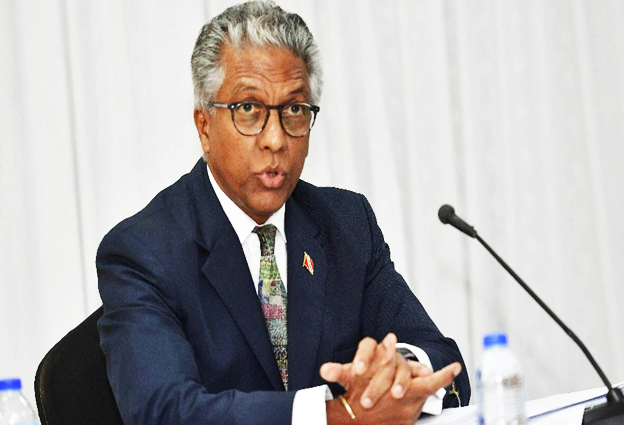With Trinidad and Tobago now plagued with the same emergency that had loomed large here some years ago, the country’s Attorney General Reginald Armour has announced that the twin-island republic will be perusing legislation already in place in other Caribbean Community (CARICOM) territories, including Guyana, in an effort to put a brake on rampant metal theft that is targeting some of the country’s more critical service installations.
As was the case in Guyana some years ago when metal theft had risen to a critical level, the authorities in Port of Spain have imposed an immediate six-month ban on scrap iron and copper exports. The decision to place an immediate brake on metal exports was announced by the country’s Attorney General came in response to what the T&T Observer says were thefts that targeted “critical state infrastructure.” The authorities have named the Telecommunications Services of Trinidad and Tobago Limited (TTSA) and the local Water and Sewerage Authority. (WASA), occurrences as the primary targets of the metal thieves.
What is now seemingly a serious challenge for the authorities in T&T had been rampant here in Guyana some years ago when metal thieves, some believed to be linked to the country’s mainstream scrap metal industry, launched what appeared to be a planned attack on Mostly copper-dependent local institutions The Guyana Telephone and Telegraph Company (GTT), particularly, and to a lesser extent the Guyana Water Authority (GUYWA) appeared to have been singled out for the vandalizing of installations and the carting off of saleable metals. In several instances investigations into the vandalizing and theft of metals had led the police directly to the scrap metal industry. Those alleged links had led to a protracted and acrimonious facedown between the authorities here and the industry which had led to the placing of restrictions on metal exports and a stepped up policing of the operations of the scrap metal dealers.
the authorities in Port of Spain appears to have been driven to the decision to impose the six-month ban following what a report in the Observer newspaper earlier this week described as “a sharp increase in recent thefts of critical State infrastructures.” The Observer report said that metal thieves’ attacks on these critical service providers had dealt crippling blows to their ability to provide service to customers,” while the Attorney General was quoted as asserting that the move to ban metal exports had also taken account of the fact that metal theft had “been affecting the livelihoods of ordinary people,” What Armour described has “an escalation of an unlawful activity” has, he said, appeared to have surged over the past four months.
Just over a decade local copper thieves in Guyana had launched a relentless and costly attack on mostly the copper-rich installations of the Guyana Telephone Telegraph Company (GTT), forcing the management to strengthen its own security regime at vulnerable locations as well as to call on the police to support their effort to end the practice. With scrap metals and copper prices on the international market soaring, metal theft became a widespread practice, reportedly attracting the involvement of both registered metal dealers as well as ‘moonlighters’ seeking a quick earner. Back in September 2017 the telephone company’s offer of a $500,000.00 reward led to the flushing out of a local scrap metal dealer after metal reportedly removed from a GTT installation was found on his premises.
“What we have been experiencing in Trinidad and Tobago for the last, I think, four months, has been an escalation of an unlawful activity, series of activities in the field of what used to be and we expect and hope will continue to be, a legitimate and important industry in this country.”
Announcing that the metal export ban had come into effect last Friday, the T&T Attorney General said that the Order “will be in effect until February 28, 2023.” As was the case in Guyana the Order now requires metal exporters “to apply for a license through the Ministry of Trade and Industry to ply their trade.”










